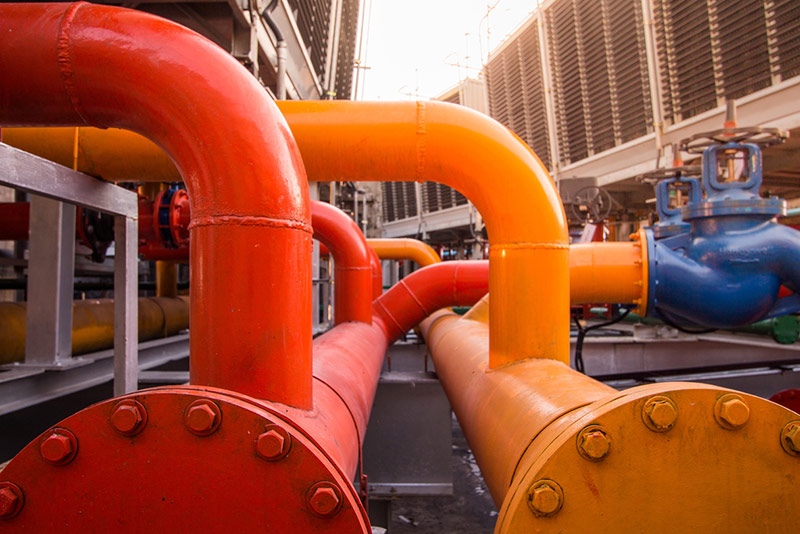Industrial chillers are an integral part of numerous industries, providing essential cooling solutions that enhance productivity and ensure quality control. These systems work by removing heat from processes or equipment, thereby maintaining the required temperature conditions. Their applications span a wide range of sectors, from food processing to high-tech manufacturing, each with its unique requirements and challenges.
Food and Beverage Industry
In this sector, chillers play a crucial role in refrigeration for preserving perishable products. They are used for rapid cooling of cooked products, chilling beverages, and regulating temperatures in storage areas. This not only ensures food safety
but also enhances flavor preservation and extends the shelf life of products. Chillers in breweries and wineries are essential for controlling fermentation temperatures, directly impacting the quality of the final product.
Plastics Industry
Chillers in the plastics industry help maintain optimal temperatures during various processes like injection molding, extrusion, and thermoforming. By controlling the temperature, chillers prevent material warping and deformation, ensuring high-quality plastic products with consistent properties and appearance.
Medical and Pharmaceutical Industry
Here, chillers are vital for maintaining controlled environments necessary for the storage of medicines, vaccines, and other pharmaceutical products. They also play a role in the production process, where precise temperature control is necessary for the synthesis and formulation of pharmaceutical compounds.
Printing Industry
In printing, chillers help maintain a stable environment, essential for quality control. Overheating can lead to paper distortion and ink spreading, so chillers ensure that machinery operates within the optimal temperature range to produce high-quality prints consistently.
Chemical Industry
Temperature regulation is critical in the chemical industry for safe and efficient chemical reactions and processes. Chillers help maintain the required temperatures, which is crucial for product stability and to prevent hazardous situations.
HVAC Systems
Chillers are the backbone of large-scale HVAC systems, providing efficient cooling in commercial buildings, hospitals, and industrial facilities. They ensure a comfortable indoor environment and play a role in air quality control.
Laser Industry
In the laser industry, chillers cool down the laser equipment, including the optics and the laser source. This cooling is crucial to prevent thermal damage and to maintain the precision and quality of laser operations.
Data Centers
Data centers house a large amount of electronic equipment that generates heat. Chillers are used to cool this equipment, ensuring optimal performance and preventing overheating that can lead to hardware failure or data loss.
Energy Industry
Chillers in the energy industry are used in various applications, including cooling turbines and generators in power plants. They help improve the efficiency of energy production and maintain the longevity of the equipment.
Aerospace Industry
In aerospace, chillers are used in the manufacturing and testing processes. They help simulate extreme temperature conditions that components might face in space and ensure that they can withstand these harsh environments.
FAQs
Q1. How do industrial chillers work?
Industrial chillers remove heat from a process or environment using a vapor-compression or absorption refrigeration cycle.
Q2. Why are chillers important in the food industry?
Chillers in the food industry ensure food safety, preserve freshness, and extend shelf life by rapidly cooling products.
Q3. Can chillers be used for heating?
While primarily designed for cooling, some chiller systems can be reversed to provide heating.
Q4. What role do chillers play in data centers?
Chillers prevent overheating of servers and IT equipment in data centers, ensuring efficient and uninterrupted operation.
Q5. Why are chillers crucial in the plastics industry?
Chillers regulate temperatures during molding processes, preventing material warping and ensuring high-quality plastic products.
Q6. Are chillers energy-efficient?
Modern chillers are designed for energy efficiency, but their efficiency varies based on type, size, and maintenance.
Q7. Can chillers be customized for specific industrial applications?
Yes, chillers can be tailored to meet specific cooling and capacity requirements of various industrial applications.
Q8. How does a chiller’s capacity affect its application?
A chiller’s capacity, measured in tons, determines its ability to remove heat and is matched to the size and heat generation of the application.
Q9. What is the difference between air-cooled and water-cooled chillers?
Air-cooled chillers use
ambient air for heat dissipation, while water-cooled chillers use a water source, such as a cooling tower, for more efficient heat removal.
10. What is the typical lifespan of an industrial chiller?
Industrial chillers typically last between 15 to 20 years, depending on usage, maintenance, and the type of chiller.
Conclusion
Industrial chillers are essential in a wide array of industries, serving a critical function in temperature regulation and cooling. Their diverse applications highlight their versatility and importance in maintaining quality, safety, and efficiency in industrial processes. Understanding their operation and choosing the right chiller for a specific application can lead to significant improvements in process control, energy efficiency, and overall productivity. As technology advances, the development of more efficient and environmentally friendly chiller solutions is expected, further enhancing their role in industrial applications.

A group of home improvement enthusiasts and bathroom design experts, combines in-depth knowledge and a shared passion to deliver engaging, informative content that guides readers through the world of bathroom innovation and style.

Leave a Reply